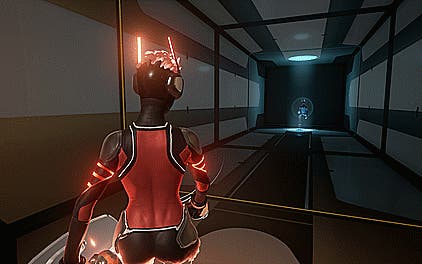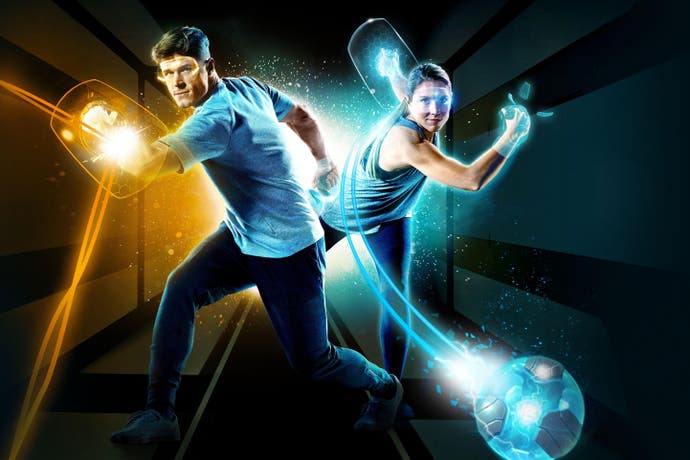Discovering a new magical moment in VR
CCP finds a Sparc.
The second coming of VR has been built around magic moments. Come meet the dinosaur on Oculus Dreamdeck! Hang out with the shark in VR Worlds! Experience the virtual k-hole that is Rez Infinite! The novelty might be wearing a little thin after 12 months on the shelves and in our living rooms, but this is still a medium that has the capacity to delight and surprise. At GDC a couple of weeks ago I was witness to another magic moment that convinced me there might be something to this VR lark after all.
It came courtesy of CCP, a studio that's done well to get in on the ground floor with VR, with Eve Valkyrie hitting the launch of both Oculus Rift and Playstation VR - and still a strong candidate for one of VR's finest standalone experiences. For CCP's next project, its Atlanta office is working on Sparc, an all-new future sports IP built from the ground up for virtual reality. And it's the studio's first video game project set outside the Eve universe in its 20 year history. No pressure then.
If it's stepping away from the fiction, it's at least leaning on the strong foundations laid out by Eve Valkyrie and by the intimate knowledge it's earned in VR. Sparc has the polish and comfort you'd expect of a second generation VR title, and it's built around the improved control introduced with the likes of Oculus Touch (and PlayStation VR's Move controllers, which will also be supported). It's an aggressive take on squash with future sports trimmings, with two players squaring up across a small court and hurling balls at each other.

There's something of Cosmic Smash in its aesthetic and set-up - though surprisingly the team at CCP Atlanta hadn't heard of the Sega Rosso curio - but the execution is all its own. Each player gets a ball, serving it up towards their opponent in unison - meaning that two balls can be in play at any one time - with the objective being to strike the opposite player. It's a simple sport that comes alive in the details as you curve shots across the court, bouncing the ball off walls while deflecting incoming attacks all while trying to dodge the inbound volleys.
The motion tracking of Oculus Touch works well in translating your movements - within minutes it's possible to serve up topspin, backspin or change up the velocity of your deliveries - but it's in the full-body tracking that Sparc really excels. It starts in the calibration process at the start of every match when you're met with a mirror of yourself as you pick up your controller, your movements being mimed perfectly, and becomes more profound when another player is introduced.
There's something eerie about sharing a virtual space with another person, and there's something brilliant about how Sparc makes that a fundamental part of what it's about. This is a multiplayer game first and foremost, and so much of it is about reading your opponent's body language for ticks or tells that can help you win a point. Subtlety and nuance play into it, as does blunt opportunism - at one stage I won a point by simply smashing the ball at my opponent when it was clear they were looking down in order to pick up their own. Either way, it's the first time I've seen full-body tracking used as a game mechanic, and it works a treat.
CCP Atlanta has high ambitions for Sparc, and for what it's calling its own 'vsport'. It's possible to spectate while waiting for a match, there'll be tournament support and there's a hope that pro players will emerge from the toolset that Sparc offers. How successful it'll be with the relatively limited audience that VR has remains to be seen - though it's looking to hit all three major VR platforms. There's something deliciously new at its core, however, that deserves to be sampled by all.

